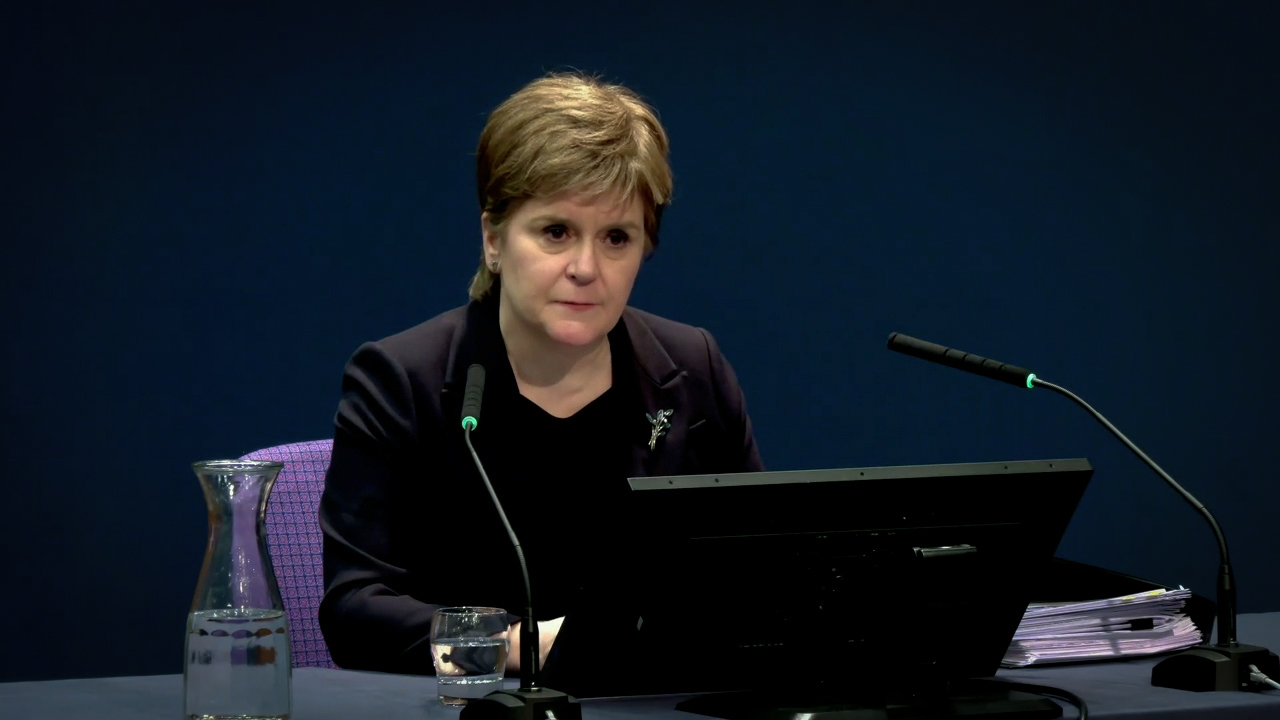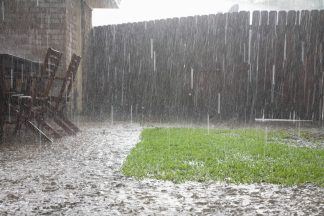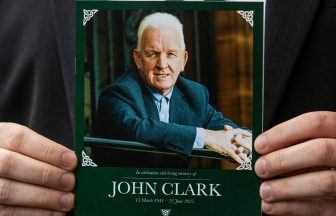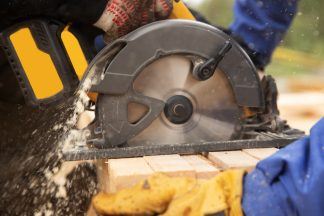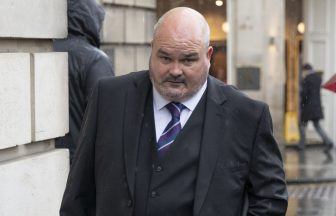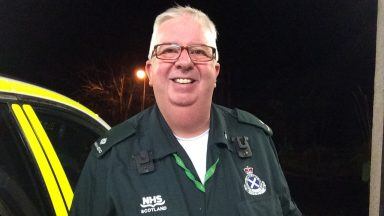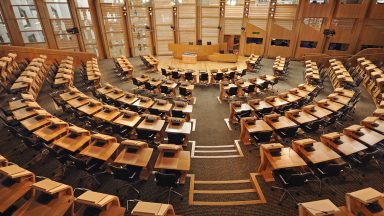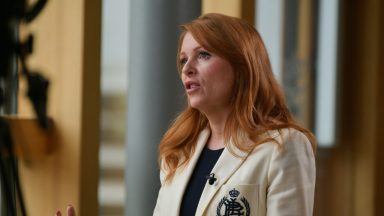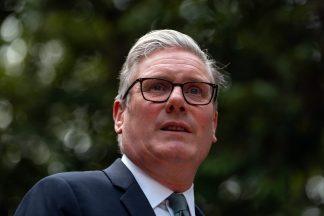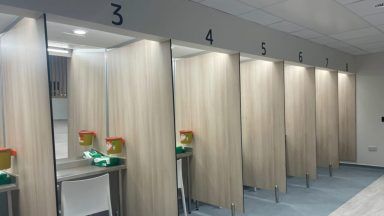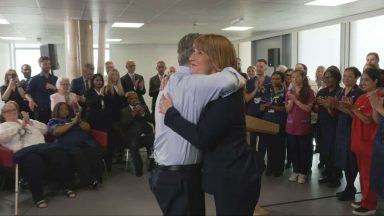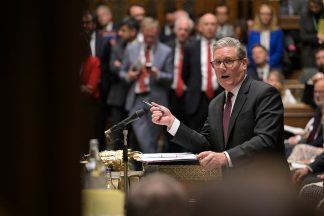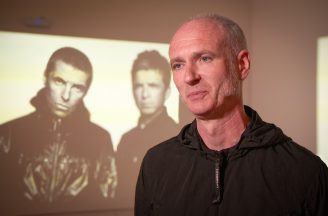Key Points
-
 Nicola Sturgeon has given evidence to the UK Covid Inquiry in Edinburgh
Nicola Sturgeon has given evidence to the UK Covid Inquiry in Edinburgh -
 She became emotional as she said a ‘large part’ of her wished she had not been first minister during the pandemic
She became emotional as she said a ‘large part’ of her wished she had not been first minister during the pandemic -
 She said she did not ‘jump the gun’ when the Scottish Government banned mass gatherings in March 2020
She said she did not ‘jump the gun’ when the Scottish Government banned mass gatherings in March 2020 -
 The former Scottish first minister said one of her biggest regrets is that she didn’t lockdown Scotland a week or two earlier
The former Scottish first minister said one of her biggest regrets is that she didn’t lockdown Scotland a week or two earlier -
 She denies making decisions on Covid restrictions for political reasons, including furthering independence
She denies making decisions on Covid restrictions for political reasons, including furthering independence -
 Sturgeon apologised after she told the media she would hand over all Covid-related WhatsApp messages
Sturgeon apologised after she told the media she would hand over all Covid-related WhatsApp messages -
 She admitted that by that time she had already deleted WhatsApp exchanges
She admitted that by that time she had already deleted WhatsApp exchanges -
 She said she does not remember receiving a ‘do not destroy’ notification from civil servants with the email subject, ‘Covid-19 Inquiry record retention’
She said she does not remember receiving a ‘do not destroy’ notification from civil servants with the email subject, ‘Covid-19 Inquiry record retention’ -
 WhatsApps released by the inquiry shows Sturgeon wrestling with decisions on Covid restrictions
WhatsApps released by the inquiry shows Sturgeon wrestling with decisions on Covid restrictions
An emotional Nicola Sturgeon has told the UK Covid Inquiry that a “large part” of her wishes she was not first minister during the pandemic.
Scotland’s former FM denied allegations of secrecy within her government, that power was too centralised and that pandemic decisions were made for political reasons.
The ex-SNP leader held back tears at several points during the six-and-a-half-hour session in Edinburgh.
She denied that decisions she took during the pandemic were made to further political ends, saying she had not “thought less” about politics and Scottish independence in her life than she did during the pandemic.
“I was motivated solely by trying to do the best we could to keep people as safe as possible,” she said.
“We did that to some extent, but not to, and perhaps we never could have done it to the extent I would have wished we could have done.
“I carry the regret for the loss of life, the loss of opportunity, the loss of education of our young people, I carry that with me every single day.”
She added: “I will always know in my heart and in my soul that my instincts and my motivation was nothing other than trying to do the best in the face of this pandemic.”
UK minister Michael Gove previously accused the Scottish Government of seeking “political conflict” during the pandemic.
Asked about such accusations, the former Scottish first minister said “the idea that in those horrendous days, weeks, I was thinking of political opportunity” was “not the case”.
The inquiry heard there was concern the Spanish government would block an independent Scotland from joining the EU if travel restrictions during the pandemic remained.
An email – copied to the first minister and a number of senior Government figures – sent by a civil servant, said he was “extremely concerned” about travel restrictions remaining on the country when there was a “point prevalence rate of 0.015”.
“There is visible action from the Spanish authorities to do whatever it takes to suppress outbreaks (compare and contrast with outbreaks in England),” the email continued.
“It won’t matter how much ministers might justify it on health grounds, the Spanish government will conclude it is entirely political; they won’t forget; there is a real possibility they will never approve EU membership for an independent Scotland as a result.”
Discussing the email at the inquiry, the former first minister said: “These are decisions that were taken for public health reasons that were difficult decisions.”
Sturgeon also spoke of the impact of the early parts of the pandemic on her personally, saying: “At times in those early days, I felt overwhelmed by the scale of what we were dealing with and perhaps more than anything, I felt an overwhelming responsibility to do the best I could.”
Aamer Anwar, lawyer for the Scottish Covid Bereaved, said Sturgeon had delivered a “polished performance” at the inquiry but said his clients were “deeply unsatisfied” with the explanations around the deletion of WhatsApps.
Anwar said: “(Ms Sturgeon’s) industrial deletion of WhatsApps, along with those of her inner circle, still begs the question of why.
“Why were they deleted when she knew that there was a public inquiry on its way?”
Pamela Thomas, a member of the Scottish Covid Bereaved who lost her brother during the pandemic, accused Sturgeon of “crocodile tears”.
‘Scottish Government did not jump the gun on mass gathering ban in March 2020’
Sturgeon denied that she “jumped the gun” on a decision to ban mass gatherings in March 2020.
She said the Scottish Government was “perfectly within our rights to take that decision” and she was “perfectly within my right” to announce the decision.
Earlier this week, Michael Gove told the Covid-19 inquiry that he believed Sturgeon had jumped the gun on the move but Sturgeon told the inquiry she would “counter” that and that they were “going more slowly than we should have been”.
She said if she had a regret about the decision, it was that it had not been taken earlier.
The former first minister said: “Of the many regrets I have, probably chief of those is that we didn’t lock down a week, two weeks, earlier than we did.”
Sturgeon apologises over pledge to release all Covid-era WhatsApps
Speaking at the UK Covid Inquiry’s penultimate session in Scotland on Wednesday, Sturgeon apologised over a pledge she made to release all Covid-era WhatsApps to a public inquiry at a time when she had already deleted messages.
The former first minister said she could have been more “clear” in answering a journalist’s question at a Covid briefing where she was asked whether an inquiry would have access to all of her communications.
Giving evidence to the UK Covid Inquiry, she said she apologised for any lack of clarity in the answer she gave to Channel 4’s Ciaran Jenkins during one of her media briefings in August 2021.
At the time, the former SNP leader said any inquiry would have access to the messages but, in fact, many had been deleted some months previously.

Referring to the exchange in August 2021, inquiry counsel Jamie Dawson KC said: “(Mr Jenkins) asked specific questions about informal means of communication, including WhatsApps.
“But you knew by that stage that your WhatsApps had been destroyed?”
Sturgeon responded: “I also knew that anything of any relevance or substance from any of that material would be properly recorded in the Scottish Government system.”
She added: “I operated from 2007, based on advice, the policy that messages, business relating to government, should not be kept on a phone that could be lost or stolen and insecure in that way, but properly recorded through the system.
“I would want to again underline that communication was extremely limited and would not relate it to matters of substantive government decision-making.”
Scottish Labour leader Anas Sarwar claimed Sturgeon’s answer to Channel 4 amounted to an “outright lie”.
‘Informal messages were not used to make government decisions’
Sturgeon told the UK Covid Inquiry that she did not use “informal messaging” such as WhatsApp to make government decisions during the pandemic.
She said her use of such communications was “extremely limited”.
She was quizzed over why she deleted WhatsApps with senior government ministers and officials during the course of Covid.
The former SNP leader said the use of WhatsApp had become “too common a means of communication” in the Scottish Government.
Sturgeon has faced questions after she admitted that messages were not retained on her own devices. But the former SNP leader has said she retrieved copies of them and sent them to the probe.
She said she deleted informal messages, in line with official advice, and “salient” points were all recorded on the corporate record.
She said: “I operated from 2007, based on advice, the policy that messages, business relating to government should not be kept on a phone that could be lost or stolen and insecure in that way, but properly recorded through the system.”
Scottish Conservative leader Douglas Ross urged Sturgeon to apologise for “destroying vital evidence”.
Civil servant: ‘Plausible deniability is my middle name’
Sturgeon said she was not “particularly conscious” of WhatsApp groups where officials were exchanging information.
She said she had “never seen messages before” in which Ken Thomson reminded civil servants in the group chat where the “clear chat” function was and that “plausible deniability is my middle name”.
The former first minister said she saw the discussion as “light-hearted” and that she would read that as him reminding people to be professional on WhatsApp.
She added that the civil servants in the Covid outbreak group chat were public servants of the “utmost integrity”.
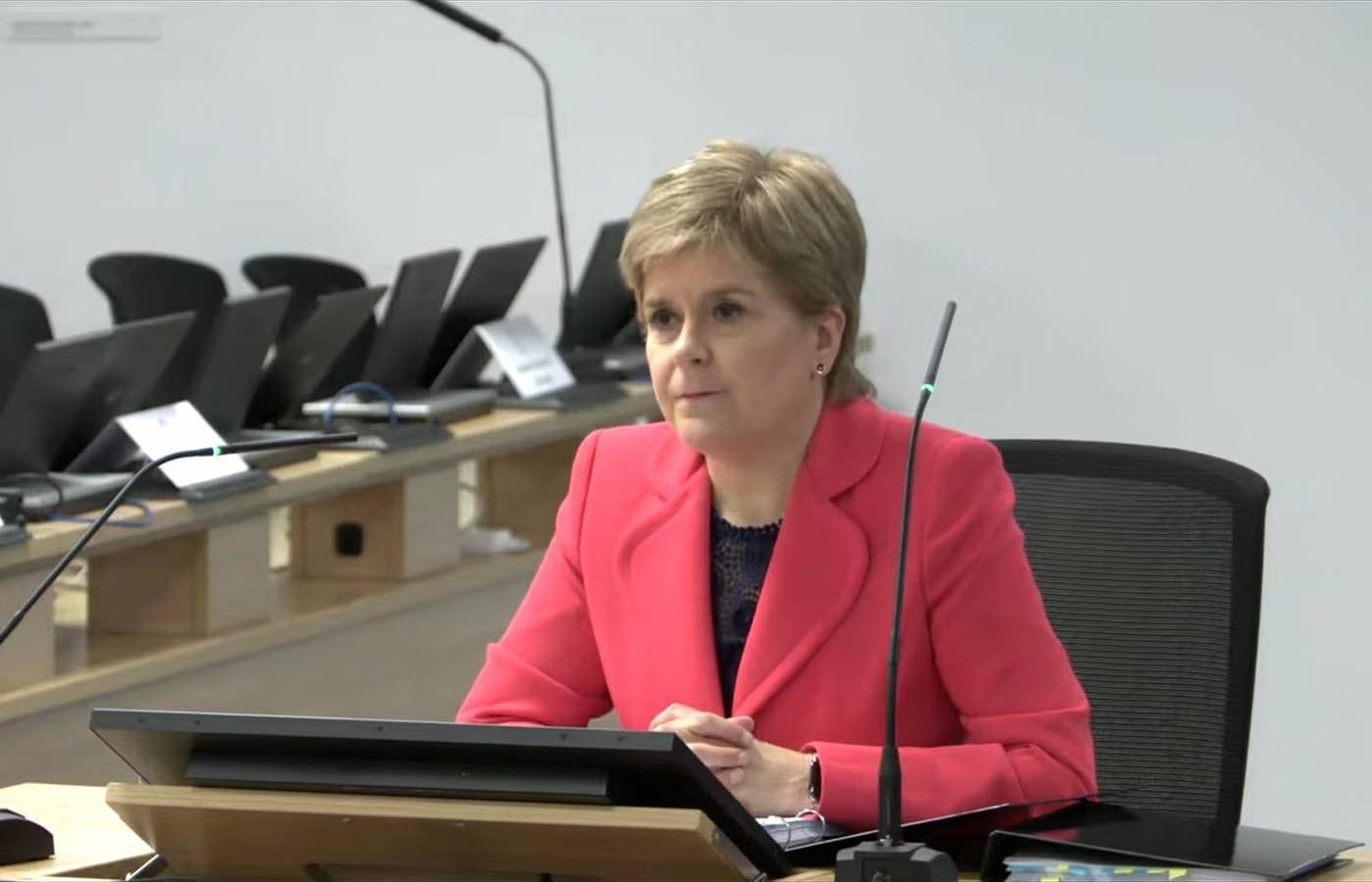 UK Covid-19 Inquiry
UK Covid-19 InquiryA number of Scottish Government ministers and officials have said decisions were routinely recorded on the official system even if messages were deleted in line with policy.
But on Tuesday, the inquiry heard that Kate Forbes – who served during the pandemic as finance secretary – was not aware of any deletion policy and retained all her messages.
Sturgeon doesn’t remember receiving ‘do not destroy’ email
On Wednesday, Sturgeon said she did not recall receiving an email from Lesley Fraser and Kenneth Thomson about the importance of record retention of material relevant to the work of the inquiry.
Sturgeon was asked by senior counsel to the inquiry, Jamie Dawson, if she recalled receiving that email on August 3 2021.
She answered: “I do not as far as I am aware, I did not receive that.”
Dawson asked: “You recall, I would imagine, in a general sense that such a notification was sent out?”
Sturgeon said: “I would say this: that I don’t think I would have required to see that to know that matters that were relevant to know the matters that were relevant.”
The former first minister said she had “always assumed there would be a public inquiry”.
WhatsApps show Sturgeon struggling with decision over Covid restrictions
WhatsApp messages exchanged between Sturgeon and her former chief of staff Liz Lloyd show the former first minister telling Lloyd she was “having a crisis of decision-making” over hospitality.
Sturgeon told the inquiry it was something she would have “preferred not to be” on the public record.
The messages between Sturgeon and Lloyd show in-depth discussion about what times to allow restaurants to stay open.
Sturgeon wrote: “I am having a bit of a crisis in decision-making in hospitality, not helped by the fact I haven’t slept. The public health argument says stick with 6pm/no alcohol for level 3. But I suspect the industry will go mad – and I worry we could derail debate.”
Sturgeon also said there was “nothing to show” that they had listened to industry on the matter.
Current First Minister Humza Yousaf, in his evidence to the inquiry last Thursday, offered an “unreserved” apology for the Scottish Government’s “frankly poor” handling of requests for WhatsApp messages.
He has announced an external review into the Government’s use of mobile messaging.
The inquiry, before Baroness Hallett, will return to Edinburgh at 10am on Friday.
Follow STV News on WhatsApp
Scan the QR code on your mobile device for all the latest news from around the country


